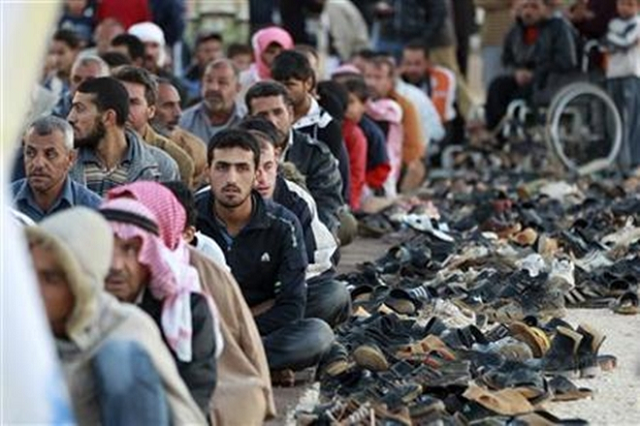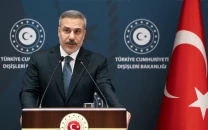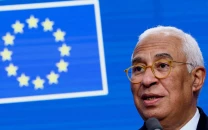US to sharply limit refugee flows to 30,000 in 2019
The new cap will be a sharp drop from a limit of 45,000 it set for 2018

US to sharply limit flow of refugees. PHOTO: REUTERS
"We proposed resettling up to 30,000 refugees under the new refugee ceiling as well as processing more than 280,000 asylum seekers," Pompeo said in an announcement at the State Department, calling the United States "the most generous nation in the world when it comes to protection-based immigration."
Jordan says can't host more Syrian refugees
"This year's proposed refugee ceiling must be considered in the context of the many other forms of protection and assistance offered by the United States," he said.
Refugee advocates quickly condemned the lower cap. "Today's announcement...is a shameful abdication of our humanity in the face of the worst refugee crisis in history, Jennifer Quigley, of Human Rights First, said in a statement.
Senator Bob Menendez, the top Democrat on the Senate Foreign Relations Committee, called the decision "cruel and short sighted." He said reducing the cap would "do untold damage to our nation's values and countless lives across the world."
Pompeo said the new limit reflected the administration's preference for settling refugees closer to their home countries, something President Donald Trump has said would be cheaper than admitting them to the United States.
Pompeo said the decision was also based on security concerns. "We must continue to responsibly vet applicants to prevent the entry of those who might do harm to our country," he said. Officials at the State Department and the Pentagon initially supported maintaining the cap at 45,000, according to one former and one current official. It was unclear whether they changed their position as the debate proceeded or failed to persuade the White House.
The refugee ceiling of 45,000 set last year was the lowest since 1980, when the modern refugee program was established. The United States is on track to admit only 22,000 refugees this year, about half the maximum allowed.
Trump campaigned in 2016 promising tight restrictions on immigration, and his administration has sharply reduced refugee admissions through executive orders and closed-door decisions in
the past year and a half.
Imbalances
In the past year, the administration has tightened security
vetting procedures that current and former officials say have
slowed admission of refugees. Ryan Mace, a refugee specialist at Amnesty International USA, urged Congress to oppose the decision as it finalises fiscal-year 2019 appropriations.
PPP leader lashes out at PM over plans to grant Pakistani citizenship to refugees
"The Trump administration is abandoning this country's promise to refugees," said Mace. "Today's announcement demonstrates another undeniable political attack against people who have been forced to flee their homes."
In addition to far lower admissions overall, the type of refugee admitted has changed under Trump, a Reuters analysis of government data shows. The percentage who are Muslim is now a third what it was two years ago, while the percentage who are Europeans has tripled. The shift has led to striking imbalances.
Refugees admitted to the United States from the small European country of Moldova, for example, now outnumber those from Syria by three to one, although the number of Syrian refugees worldwide outnumbers the total population of Moldova.



















COMMENTS
Comments are moderated and generally will be posted if they are on-topic and not abusive.
For more information, please see our Comments FAQ